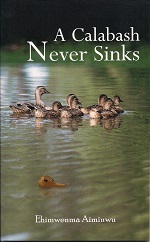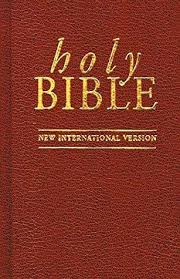There is a lot of traditional history at both Benin and Lagos ends relating to the origin of what is now Lagos, its ruler and it’s connection with Benin. But perhaps to avoid inadequacies and controversy which the academics claim surrounds traditional history, we may like to hear what some modern historians have to say on this subject. Robert S. Smith, in his book of some principal Yoruba owns, especially in and around Oyo, and the westward expansion in the 17th century of Benin Kingdom with it’s number of subject towns on or near to the coast, which included Lagos, went on to say this about Lagos in particular:
“It’s name reflect it’s past to the Yoruba it’s Eko, deriving probably from the farm (Oko) of the earliest settlers, though alternatively-or additionally-it may be the Benin word (Eko) for a war-camp…We say Eko is a Benin word that means camp”
After describing the activities of the armies of Benin under Oba Orhogbua, culminating in his arrival at what is now Lagos, Smith went on to add:
“Sometime later the Oba appointed a ruler for Lagos to represent the interest of Benin and to forward tribute there. The man chosen is named in both Lagos and Benin Tradition as Ashipa”
Smith says that by Lagos account this Ashipa was an Isheri Chief, while the Benin account says Ashipa was a grandson of the Oba of Benin. We shall come to this later. Smith was, however, satisfied that Benin had established it’s ascendency in Lagos and had founded a dynasty there at some period before 1700.The dyansty’s dependence on Benin, Smith found, was emphasized by the appointment of another Chief, the Eletu Odibo, who alone had the right to crown the Oba and who in early times probably maintained close connection with Benin,.(Eletu Odibo is a corruption of the Edo equivalent Olotu Odibo)
“G.T. Stride and C. Ifeka, in their book titled Peoples and empires of West Africa have this to say on the same subject:
Oba Orhogbua was clearly a strong warrior for he enforced tribute payments from all parts of the empire and in the middle 1550s conquered all the coastal lands up to Lagos where he left a permanent garrison. Tradition in Lagos says that their first Oba, the Eleko of Eko, was a son of the Oba Orhogbua of Benin”
It will be seen, therefore, that even if we were to disregard traditional history there is enough material from modern historians to confirm the fact that what is now Lagos was founded by an Oba of Benin who also gave it it’s first ruler. But we really cannot disregard traditional history. In Benin tradition, and we believe the same of Yoruba and other ethnic groups in this country, one way to establish that an event in traditional history did occur is by the type of anecdote or adage that evolves from that event . Thus, for instance, We Edo people say that “Orhogbua gb’Olague,ona y’ukpe abekpen z’umwen rie Edo, meaning that Oba Orhogbua defeated Olague and used sword to bring his salt to Benin, This is in allusion of to the exploits of Oba Orhogbua while in his camp (Eko) from where he over-ran the place known as Mahin with it’s ruler whom the Benin People nicknamed Olague. There Orhogbua discovered the common rock salt and brought it to Benin who thereby tasted it for the first time.
Now the name “Ashipa has featured quite prominently (and rightly too) in the history of Lagos. After the Oba Orhogbua returned to Benin from Eko, he appointed a commander or an administrator, who was called Aisikpa to look after the skeleton troop left in the camp(Eko) until he returned again from Benin. He could no longer return having seen the situation at home. The name “Aisikpahienvoborre” which means “people do not desert their home-land. “This is how Aisikpa, whom the Yoruba now call Ashipa, came into the Lagos (Eko) history. Eko is still there as the traditional Benin name for Lagos; Ashipa has been retained as a senior traditional chieftaincy title while his descendants now retain the modern name of Oba of Lagos. The interaction of Edo people with others in distant lands must have inevitably resulted in cultural exchanges.
Excerpts From a Lecture on the Evolution of Traditional
rulership in Nigeria given under the auspices of the University of
Ibadan, Institute of African studies on 11th September,1984 by Omo
N’Oba N’Edo Uku Akpolokpolo Oba Erediauwa.








